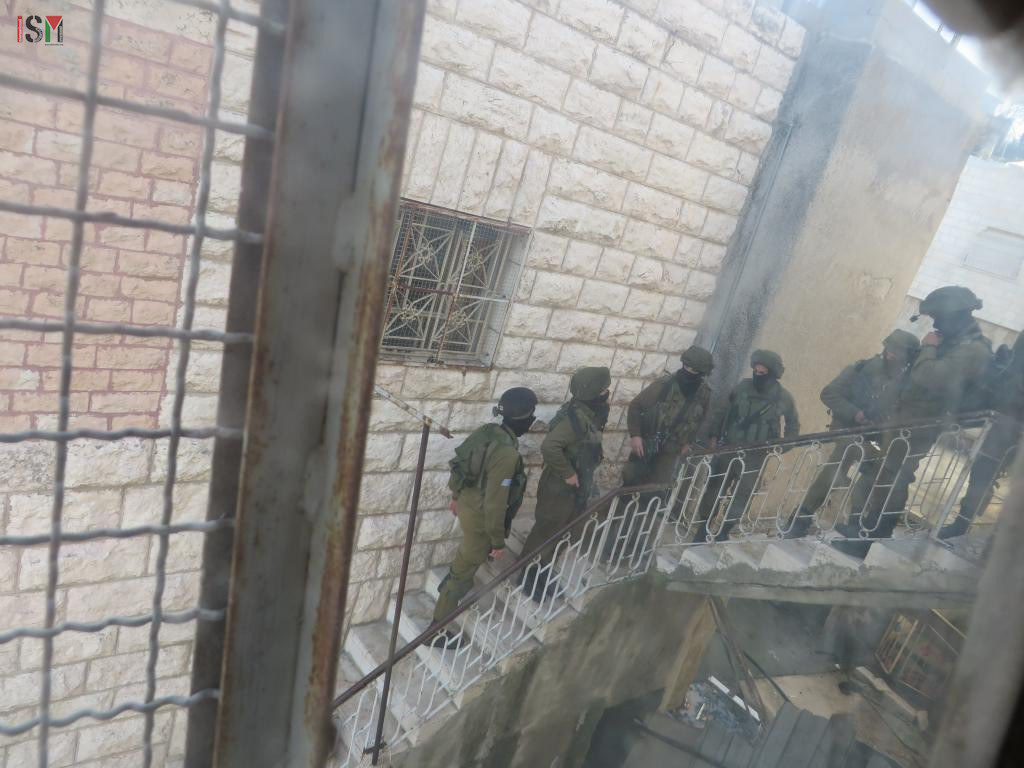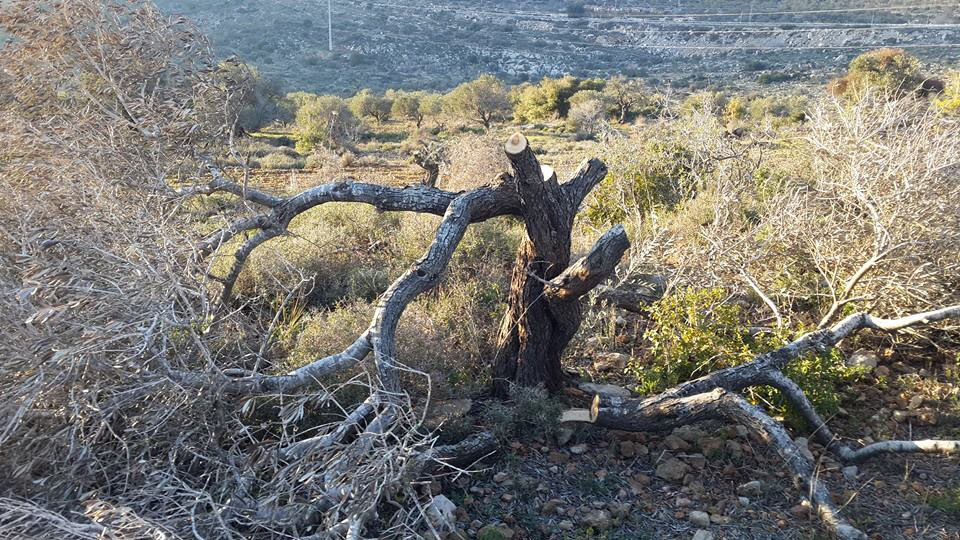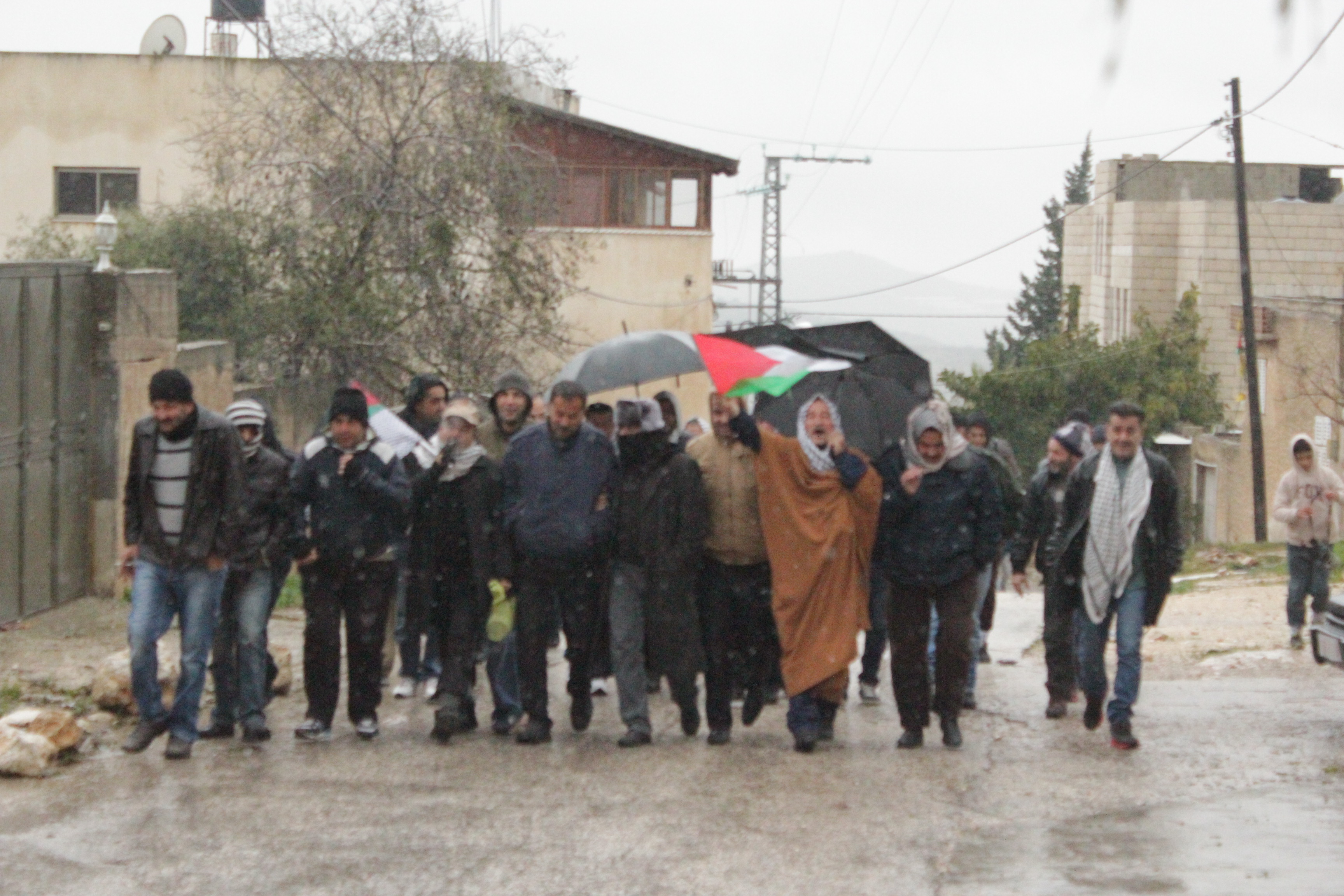Category: Video
-
VIDEO: Israeli forces invade ISM apartment as part of a campaign of continual harassment against activists in Hebron
5th March 2015 | International Solidarity Movement, Khalil Team | Hebron, Occupied Palestine To date, ISM volunteers in Al-Khalil (Hebron) have faced two attempted night raids, two invasions, and continual daily harassment from Israeli occupation forces. Other organizations in Hebron, including Youth Against Settlements and Christian Peacemaker Teams, have also faced harassment including raids, detentions, and arrests. On…
-
VIDEO: Olive trees destroyed in Yasuf
13th January 2015 | International Solidarity Movement, Nablus team | Yasuf, Occupied Palestine On Monday, January 11th, a farmer in Yasuf went out to see how his land had weathered during the recent storm and saw that a large number of olive trees in neighbouring plots had been cut down to their trunks. He immediately alerted…
-
VIDEO: Snow and rain does not stop Kufr Qaddum protest
9th January 2015 | International Solidarity Movement, Nablus team | Kufr Qaddum, Occupied Palestine Dozens of demonstrators braved the rain today to protest the continued closure of the Kufr Qaddum’s main road to Nablus. A peaceful march began at noon after prayers ended. Villagers, alongside Israeli and international activists, walked up Kafr Qaddam’s main street as…



